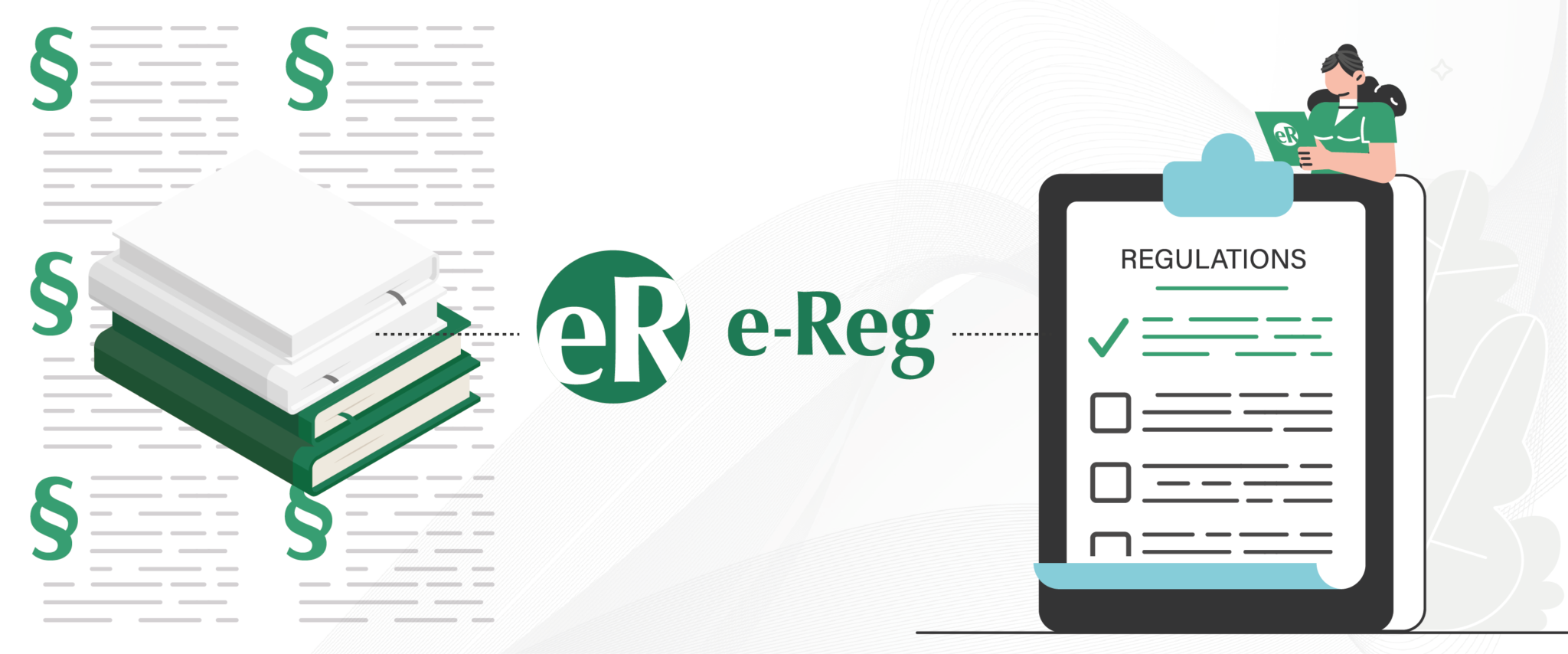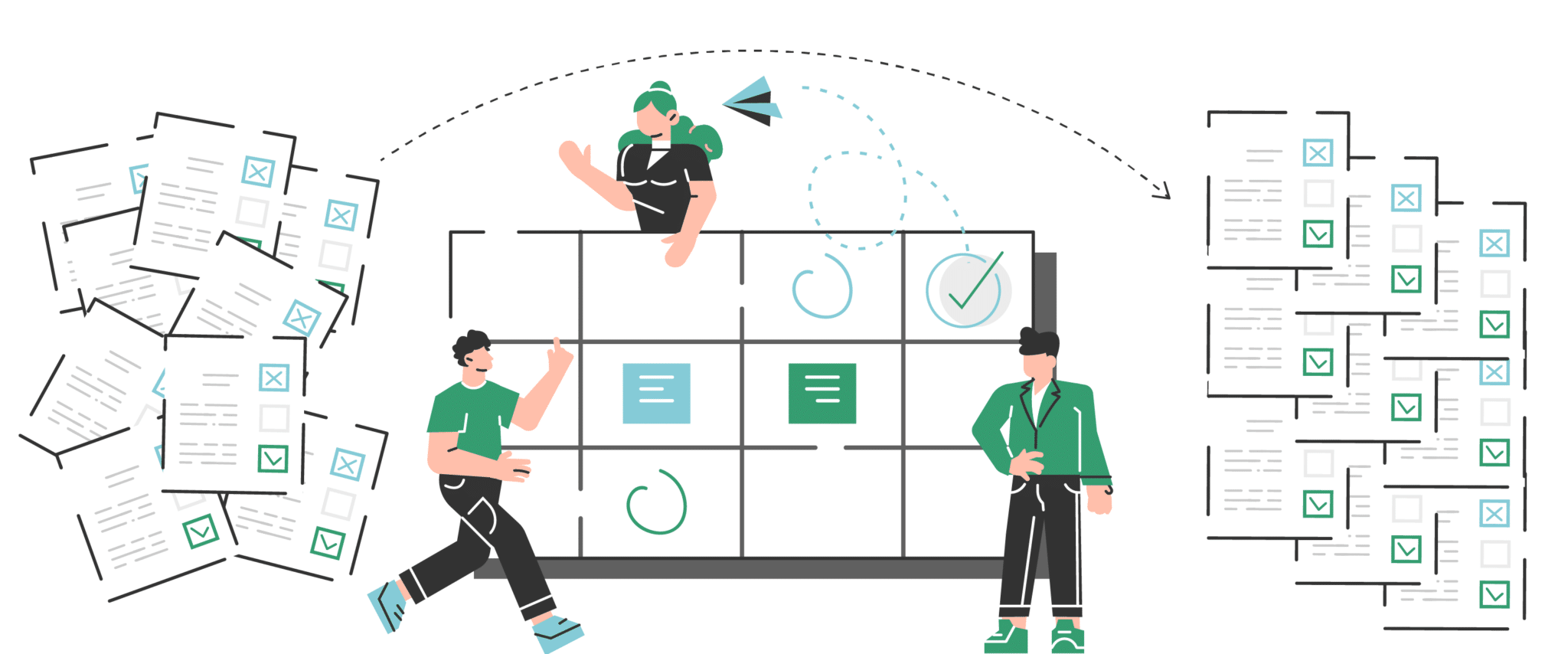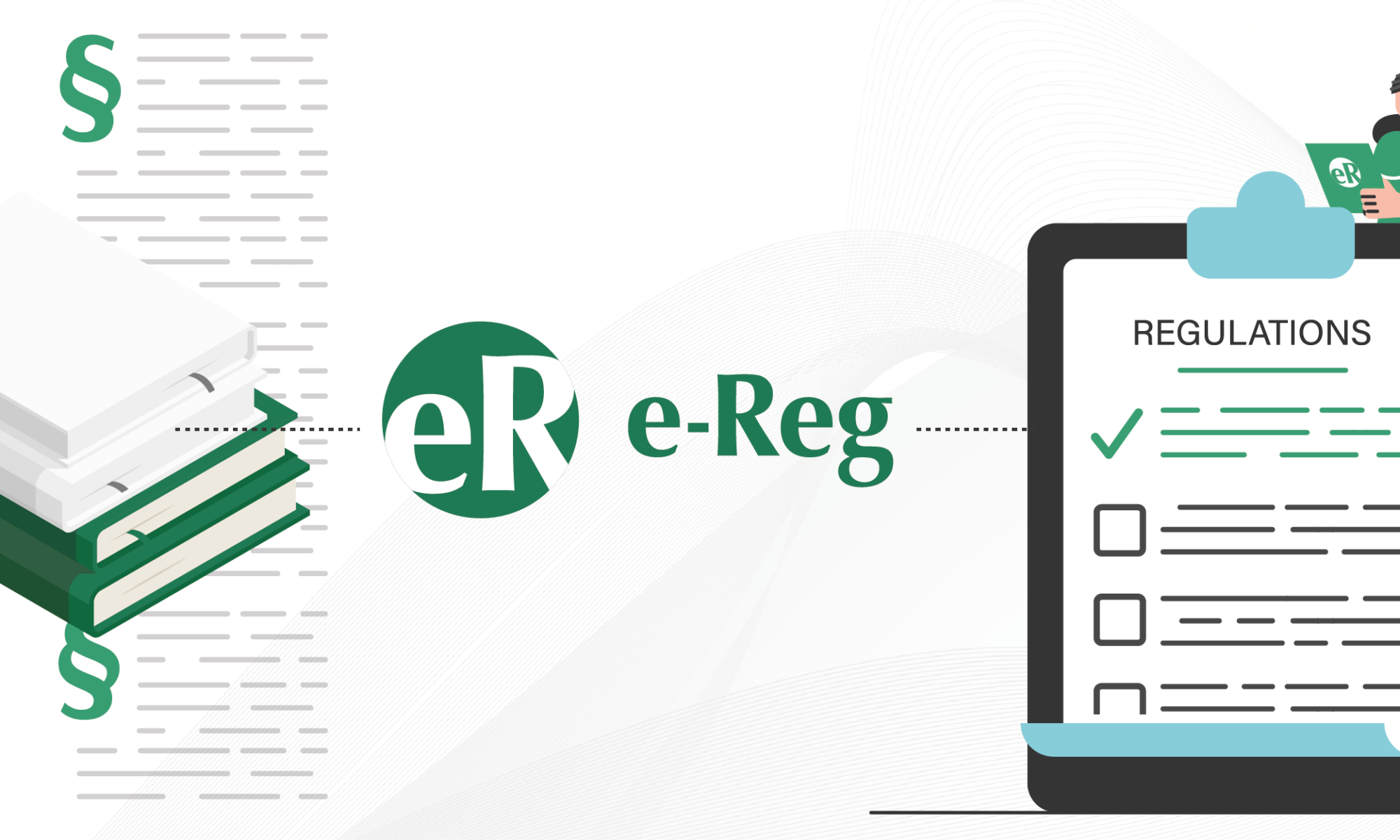RegTech or LegalTech, do you know the difference between these technological solutions? e-Reg is a RegTech platform, although it can also be considered a LegalTech. In this article, we explain the missions of these two types of company and the profile of their users. We also explain the features of e-Reg that enable it to be classified in both categories, but above all as RegTech.
1 – What is a LegalTech company?
The concept of LegalTech emerged in the United States and the United Kingdom in the 2000s. It occurs alongside numerous technological developments in the digital field, data processing and artificial intelligence.
1.1 – Definition and history of LegalTech technology
The concept of LegalTech is still relatively new in the world, which is not surprising given the youth of the technologies used.
1.1.1 – What does LegalTech mean?
The term LegalTech is a contraction of legal technology. Wikipedia provides a definition based on the ethical charter for an online legal market and its contributors, an organisation that brings together a large number of legal professionals.
Furthermore, a LegalTech uses technology “to develop, offer or provide products or services relating to law and justice, or to provide access to such products or services for users of the law, whether professionals or not”.
1.1.2 – Technologies for legal efficiency and cost reduction
They are sometimes referred to as “legal start-ups”, LegalTech companies have been in existence mainly since the last decade. These are innovative companies that use technology, including digital technology, to provide digitalized and often automated legal services.
Through the use of these new techniques, a LegalTech makes it possible to reduce the processing of a wide range of legal activities (contract creation, legal monitoring, dispute resolution, etc.). Algorithms analyse the data provided on online forms filled in by Internet users. In this way, they adapt the drafting of a contract or, for instance, insert the essential legal clauses.
1.2 – Missions of LegalTech companies: improving legal practice
These start-ups use technological innovation in the legal field. They offer services in SaaS mode for :
- prepare company articles of association online ;
- carrying out legal formalities for the creation or modification of a company;
- draw up contracts in all areas of law ;
- resolve disputes (automated demand letters or services offered by online agents) ;
- carry out searches in different databases ;
- simplify the management of a law firm by automating certain tasks ;
- facilitate regulatory monitoring by producing guides or thematic fact sheets to help web users, etc.
On 13/02/2023, Le Nouvel Économiste published an article entitled “LegalTech et RegTech tracent la voie”. It details practical uses such as legal big data, data protection (LPD, RGPD), evidence management, compliance and Contract Lifecycle Management (CLM).
1.3 – Clients of LegalTechs
The LegalTech sector targets two very distinct types of customers. It is aimed at both legal professionals and private individuals.
1.3.1 – The legal professions: lawyers and in-house counsel
The legal profession is undergoing profound change. As in other areas of consultancy, automation and dematerialisation are helping to eradicate all low value-added tasks. Lawyers and consultancies are now taking these developments on board and are gradually adopting the LegalTech solutions on the market. By saving time and therefore money, it allows the firm’s work to be focused on areas where the lawyer offers real added value to clients.
1.3.2 – Individuals with legal needs
LegalTech is also making the law more accessible for individuals. If they are looking for legal services that are directly available online, affordable and without the need for a law firm or legal adviser, this is the solution. In this sense, Tech is democratising the practice of law based on the “do it yourself” principle, for example by enabling people to draw up their own documents such as contracts or letters.
2 – What is a RegTech company?
How does a RegTech differ from a LegalTech? Even if the line sometimes seems thin, it is still possible to distinguish between these two types of start-ups.
2.1 – Definition of RegTech
RegTech stands for Regulatory Technology. The fundamental aim of the services offered by RegTechs is to help users to remain or become compliant with any regulation or law. RegTech considers all the relevant government texts, whereas LegalTech focuses solely on the acts and ordinances.
RegTech solutions are used to meet regulatory and compliance requirements, and to issue the reports required by financial institutions. Thanks to new technologies, they provide greater efficiency and a reduction in risks and costs. It is often a way of combating the complexity of regulation.
2.2 – Areas of intervention and users of RegTechs
RegTechs cover all the needs of regulatory activities, both for banks or financial institutions and for the lawyers or consultancies that support them. These companies operate in the following areas:
- regulatory watch ;
- regulatory reporting ;
- compliance management ;
- risk management ;
- data protection (LPD, RGPD, etc.) ;
- asset management (application of the FinSA in Switzerland in particular).
3 – e-Reg: LegalTech or RegTech?
The aim of easy Reg is to simplify regulation by saving time on a day-to-day basis for those involved. It is aimed both at banks and at their legal environment.
3.1 – What services does the easyReg online platform offer?
We have designed the e-Reg tool to provide technological services around financial regulation. This “regulation centric” platform offers the following functionalities:
- search engine based on keywords, references or filters and in four languages ;
- full information on the regulatory context, so that you have an overall view of the regulations, with immediate access to the texts via clickable links ;
- the possibility of enriching and analysing regulatory information by adding comments ;
- collaborative tool for regulatory projects within a team ;
- knowledge management, thanks to information-sharing functions, traceability or comments, useful in particular for absences or special treatments ;
- library of applicable regulations, all in a multilingual system.
3.2 – Why is e-Reg part of LegalTech?
e-Reg is used in law firms that carry out assignments relating to financial regulations. This use by legal professionals makes our tool a LegalTech. In fact, e-Reg provides them with a totally digital simplification of regulations.
In particular, they have access to all acts and ordinances in force in Switzerland. But above all, they have access to all the explanatory reports, consultation documents, circulars and FINMA communications, self-regulation and all the other documents that provide a complete overview.
3.3 – How does e-Reg go further as a RegTech?
But e-Reg is not just a LegalTech. It is also a RegTech. On the one hand, the solution covers all financial regulation, well beyond acts and ordinances. Thousands of pages and reports, regulatory texts, FINMA circulars, FINMA communications, explanatory reports, etc. are available online. And let’s not forget the evolution of regulation and its context.
Furthermore, the majority of e-Reg users are professionals with no legal training. These are employees in the financial services sector, both in banking establishments and in consultancy firms. For these two major reasons, we usually say that e-Reg is a RegTech rather than a LegalTech.
LegalTech, but above all RegTech, our e-Reg collaborative platform simplifies financial regulation for you, beyond the legal aspects alone. From regulatory research to monitoring and managing regulatory changes, we offer a comprehensive SaaS-based tool that is easy for your teams to learn. Schedule a meeting with Enrico Giacoletto. He will organise a personalised demonstration of e-Reg for you.
👉 Sign up for our Newsletter to keep up to date with the latest regulatory news and follow any announcements of new rules or major changes.



